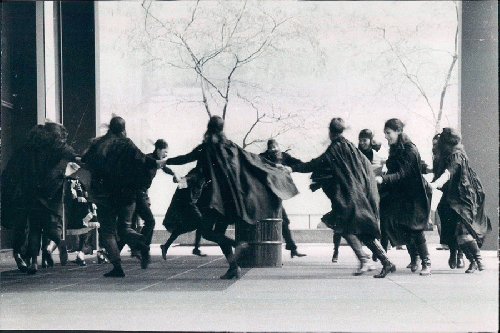Author Bruce Lerro: Socialist Planning Beyond Capitalism
Orientation
The term "New Age "means different things to different people: some positive, some negative. But I disagree with those sociologists or scholars of New Religious Movements who are overly inclusive and lump all kinds of alternative movements into New Age. To address this, in Part I of this article I contrasted twenty-seven ways in which Neopagans differ from New Agers. I began with what New Agers have in common. Then I defined the New Age, its boundaries and relationships with other movements along with its heroes and heroines. Then I did the same for Neopaganism. I also identified the historical and economic circumstances in which each arose.
However, my intentions are more ambitious than just doing a compare and contrast exercise. As a socialist, I want to know if either the New Age or Neopagan movements have anything to offer 21st century socialism? If you ask socialists themselves the overwhelming majority say no! They might say New Age is a desperate attempt by alienated middle classes to escape the crisis in capitalism by retreating into mysticism. They might refer to its commonalities with the mysticism of the end of the 19th century that Lenin criticized. As for Neopagans, socialists might say they are a throwback to superstitious times before the Enlightenment. The Enlightenment, after all, dismissed witches as products of the sick minds of the Inquisition. Undeterred by this socialist cynicism, in Part II of this article I answer the questions I raised at the end of Part I. First, I address what New Age has to offer socialism. Then I ask is there anything of value that Neopaganism has to offer socialists. I conclude that there is almost no New Age claims and values that are of any use to socialism. On the other hand, there is quite a bit that Neopaganism has to offer socialism if only socialists would listen.
WHAT DOES THE NEW AGE HAVE TO OFFER SOCIALISM?
Eastern spiritualism and spiritual individualism
Many socialists are insensitive to the difference between the Judeo-Christian religion of the West and Eastern spiritualism, which is embraced by New Agers. They are likely to dismiss the new-found techniques of meditation and rarely meditate themselves. What socialists would particularly reject is the do-it-yourself individualist spirituality. Liberation Theology socialists might say at least Catholic spirituality has a social component. Working-class socialists would either continue with their traditional religions or simply drop out and be apathetic to their religion. Individualist spirituality would have no draw for them.
The new science and decentralized eclecticism
Socialists would happily agree with New Agers who rejected mainstream political and religious authorities, but they are not likely to agree with New Agers about science. For socialists, science is a bedrock and they are likely to be unaware of new science and would not be very interested in challenging tradition. There are some socialists that would celebrate Stephen J. Gould's punctuated equilibrium as the application of dialectics to Darwinian theory. However, New Age interest in science is usually the New Physics, the study of the brain and states of consciousness. Socialists usually aren't interested in these subjects. New Age is a decentralized association of groups that have made little, if any, attempt to centralize or coordinate their activities let alone centralize so that they might fight for power. Socialist would see New Age as a spiritual marketplace.
The subjective nature of evil, anti-proselytizing
The New Ager's pollyanna attitude of love and light would drive all socialists crazy. While socialists would agree with New Agers that there is no objective evil in the form of a devil, socialists would disagree that evil comes from psychological short-sightedness, lack of education, or ignorance. Socialists would say capitalists are a small class of people that are willing to destroy humanity and the planet. This class struggle is not a matter of capitalists being short-sighted, lost, greedy, or incompetent. Socialists would not call capitalists "evil" because of its moral and spiritual overtones. But this is what it amounts to.
Some socialists would agree that the development of a socialist individual identity would move beyond the individual ego, but would say that deeper individual self is inseparable from the practice of a community of socialists and not to be achieved through an isolated spiritual practice. New Agers reluctance to proselytize or do a kind "missionary" work would be treated as lacking ambition. Socialists want to recruit the working class to its ranks and understands that the working-class has "false-consciousness" that must be overcome through argument and struggle. Socialists know that socialism can only be successful if it can spread internationally. It must aspire to expand. It cannot afford to wait for workers to get on board on their own accord.
The shape of change
Socialists would agree with New Agers that operating with a linear sense of time is outdated. They would agree up to a point with New Agers about the importance of looking at long-term change as cyclic. However, socialists' interest in cycles would be limited to historical change. It would mock New Age interest in long-term astrological cycles. For socialists, astrology has nothing to do with what happens in history. Lastly, for Marxian socialists, cycles change into a dialectical spiral moving from theses-antithesis and synthesis.
(Note: You can view every article as one long page if you sign up as an Advocate Member, or higher).






